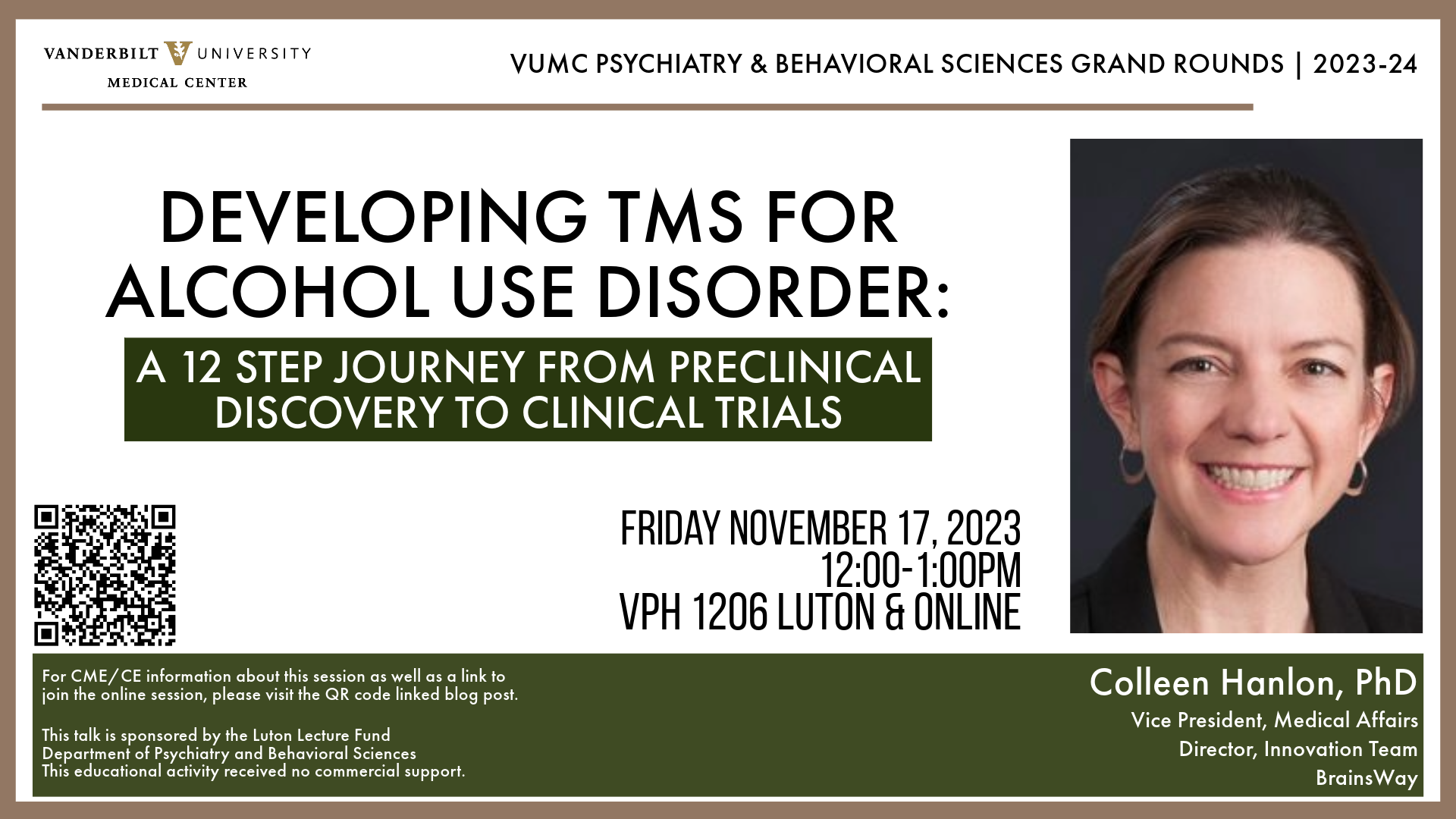
"Developing TMS for Alcohol Use Disorder: A 12 Step Journey from Preclinical Discovery to Clinical Trials"
Colleen Hanlon, PhD
Vice President of Medical Affairs and Director of the Innovation Team, BrainsWay;
Visiting Professor, Wake Forest School of Medicine
This talk will cover a series of 12 decision making steps that led from discovery science to clinical trials for TMS in AUD. The talk will integrate studies from multiple laboratories and highlight moments that led us to rethink our hypotheses as well as findings that moved us forward.
Dr. Hanlon is an internationally recognized thought-leader in the development and expansion of non-invasive neuromodulation therapeutics for new populations.
She is currently serving as the Vice President of Medical Affairs for BrainsWay and director of their Innovation Team. Before moving to industry she was a tenured professor at the Wake Forest School of Medicine wherein she ran a multidisciplinary translational clinical research program which used brain imaging and brain stimulation to develop novel therapeutic protocols for mitigating craving among multiple populations with substance use disorders. She spent over 17 years of clinical research experience in transcranial magnetic stimulation (TMS) and brain imaging (including structural and functional MRI). Recognized as a pioneer int TMS for addiction, Dr. Hanlon has received over $12 million in support from the National Institute of Health to develop neural-circuit based therapeutics for patients with a variety of psychiatric and neurologic disorders.
She received her undergraduate degree from the University of Florida, a PhD in neurobiology from Duke University wherein she focused on motor recovery after stroke using functional MRI. She did a postdoctoral fellowship at Wake Forest University wherein she first became interested in neuromodulation.
In 2023, she was given the prestigious International Brain Stimulation Early Career Investigator award and she is the senior author on the first “Consensus Paper” published by a group of over 70 scientists from over 10 countries outlining the path forward for Non-Invasive Therapeutic Development for Addiction.
In addition to advancing the science and evidence for TMS for various indications, she also participates in the research training and education community at both a local and national level. She has been a consultant and mentor to over 75 trainees, many of whom she has mentored in TMS practices. She has directed the Advanced TMS Training Course sponsored by the National Center for Neuromodulation for Rehabilitation and has participated in a number of science advocate and public policy committees.
Objectives
The activity is designed to help the learner
- List the key neurobiological factors contributing to Alcohol Use Disorder (AUD) and the potential impact on the brain.
- Describe the fundamental principles and mechanisms of action underlying Transcranial Magnetic Stimulation (TMS) as a treatment modality for AUD.
- Assess the current clinical evidence and research studies supporting the efficacy of TMS as a therapeutic intervention for AUD.
- Explain the potential side effects and safety considerations associated with the application of TMS in the context of AUD treatment.

This talk is sponsored by the Luton Lecture Fund, Department of Psychiatry and Behavioral Sciences. This educational activity received no commercial support.